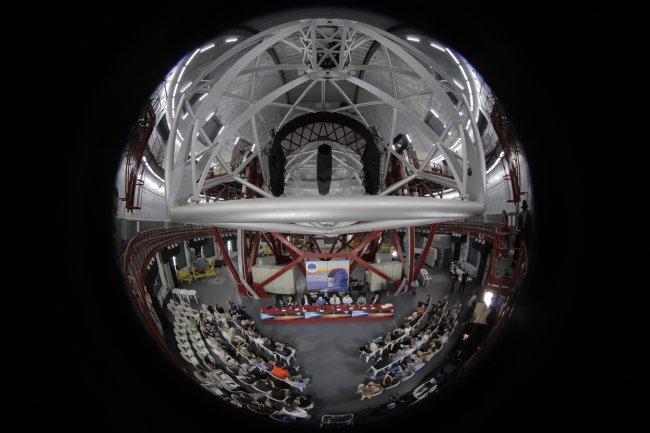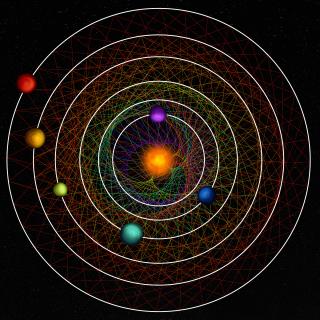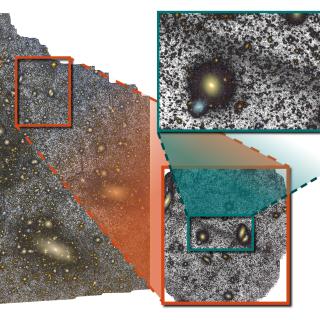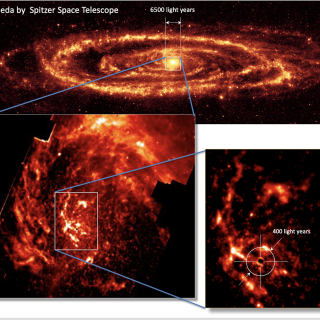The Gran Telescopio CANARIAS (GTC) at the Roque de los Muchachos Observatory, in Garafía (La Palma) was the venue yesterday afternoon of the customary panel discussion “108 minutes” featuring some of the invited speakers to the third edition of the STARMUS festival. The name of this discussion pays tribute to the length of the first space flight by a human being, by the Soviet cosmonaut Yuri Gagarin. Those invited this time were (in order of the seating arrangements, from left to right around the table: the mathematician Roger Penrose, the biologist and Nobel Laureate in Medicine Elizabeth Blackburn, the Director of the Instituto de Astrofísica de Canarias (IAC) Rafael Rebolo, the Apollo 9 astronaut Russell (Rusty) Schweickart, the Astrophysicist from Harvard University Robert Kirschner, the Nobel Laureate in Economics Joseph Stiglitz, the astrophysicist and founder of STARMUS Garik Israelian, and the cybersecurity expert Evgeny Kaspersky.
Asteroids
The members of the panel started by talking about cosmic threats, as June 30th is “International Asteroid Day”. Schweickart, who acted as moderator, commented that around 100 events had been organized around the world to celebrate the day, which were mostly outreach activities. Krishner said that there are now many telescopes looking for asteroids and measuring their properties, their orbits and the distance which will separate them from Earth at closest approach. The Stiglitz asked if large asteroids could be deflected using technological means, “Those are the least frequent” answered Schweickart, and they are the easiest to detect and to follow their orbits, so we know that there is no risk of impact by one of them in the next 1,000 years.
The biggest priority in the field is, however, to discover the asteroids we still don’t know about, normally rather small, but with a higher impact probability. Rebolo explained that the Large Survey Telescope in the Southern Hemisphere is doing an excellent job in this work, but that there is no equivalent coverage in the Northern Hemisphere at present. “I would be very happy” he said “if we had a similar telescope here in the Canaries”. Penrose said that “This is a problem which is clearly global, and if the costs were shared a possible deflection would be relatively cheap”. Kaspersky admitted that asteroids could destroy us, but we should not forget that they have been very important for life, because they brought water to the Earth.” So if we have to destroy one,” he concluded in a humorous tone “we should do it with respect”.
Climate change
Elizabeth Blackburn thought that international collaboration to tackle the risk of asteroid impact could be important in setting a precedent for other subjects of global interest such as climate change “We know” she said, that if we stop all CO2 emission now it will remain in the atmosphere at a high level for a long time, so we need to find ways to reduce it , and one way is to replant (trees) as we know that plants can fix CO2 taking it out of the atmosphere”. For Penrose “Reducing the CO2 level in the atmosphere is a major challenge to be confronted using technology and engineering”. Rebolo said that a solution to the need to reach zero emission can be found in the Sun: fusion energy (like that produced in our star), photovoltaic energy and wind energy are all related to the Sun”. Stiglitz reminded us that we could reach a 2º rise in temperature very soon, and that the problem will not be resolved just by thinking that we can do so by developing the technology needed to slow it down “ because that will reduce the pressure on activities needed to reduce the CO2 emission. He suggested “Putting a tax on carbon emission would help to reduce the CO2 and would not affect the economy”. Israelian took the view that “Many people prefer not to see the news because it is always negative, and this is a major problem”
Science Education
“We have a problem”, said Penrose “because many people don’t believe what the experts are saying”. For Kirshner “Astronomy is a very good way to bringing people to science because they can see how the scientific method works on objects which they themselves can see in the sky” Israelian thinks that scientists need to convince the general public about problems such as climate change, so that governments will act, while for Kaspersky “Science has the social responsibility to improve education and knowledge in society about scientific problems” “Another serious problem in our society” added Stiglitz, “is one of confidence. The general public does not have confidence in any institution, even in scientific institutions”.
For Blackburn “It is very important for scientific institutions to approach schools and institutes to educate and for outreach as the IAC does”. Rebolo added that “In the IAC we are convinced that to generate confidence we need to start with the children, and to do that we need the teachers, who then generate confidence in their students”. Along the same lines Kirchner added “If scientists and engineers tell their own stories to the new generations these will see that science is a normal human activity, not something distant or impossible”. Penrose suggested that it could be interesting to publish those theories which are found not to be valid when they are tested, because this is also a part of the process of science. And Schweickart thought that it was important to explain to children that science is important.
At the end of the debate Romano Corradi, astrophysicist and director of the GTC thanked the invited speakers for their most interesting discussion and for getting all of us to think about such highly important themes. As a farewell gesture all those present were shown the GTC in motion at the velocity it needs in order to point at an object in the universe.



